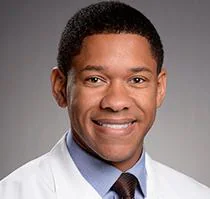Rapidly declining health, little to no retirement savings, and premature death. That’s what the picture of Black aging in the U.S. looks like.
While Blacks experience inequities in nearly every metric for quality of life – from net wealth to housing – these disparities are even more pronounced among their older cohort, according to a groundbreaking report from the National Caucus and Center on Black Aging (NCBA).
The reality of our physical health is especially pernicious. African Americans were 1.3 times more likely to be obese than Whites in 2018. As a result, they remain more prone to conditions like diabetes, high blood pressure, stroke, and heart disease, says that same NCBA report. Out of all racial or ethnic groups, Black Americans also have the highest mortality rate for all cancers combined and for most major cancers.
Our mental health isn’t much better. African Americans are less likely to get treated for mental health and substance abuse disorders and twice as likely to develop Alzheimer’s or other dementias compared to Whites.
All those statistics add up to this: Black Americans often don’t get the opportunity to realize “Healthy Aging,” which is defined as “a continuous process of optimizing opportunities to maintain and improve physical and mental health, independence, and quality of life throughout the life course.”
Achieving this kind of aging isn’t about being free of chronic conditions. Rather, “we are addressing health changes by reaching out for support and routinely seeing our doctor and getting our checkups and staying on top of our overall health,” said Dr. Jarrod Carrol, a geriatrician with Kaiser Permanente.
How Healthy Aging Can be Achieved
So, how can Black Americans age healthfully and fruitfully while reversing this horrific trend? The answer is take action now in our 30s, 40s, and 50s.
Black Men’s Health recently interviewed Dr. Carrol, who offered these tips to get us started:
Tip #1: Go to the doctor and be honest about your health.

healthy aging. Source/Handout
We have to be willing to seek out support and help for our health. We need to be active and engaged in going to the doctor, being evaluated, and being open and honest with the doctor. We’ll have African-American male patients who won’t fully disclose everything going on [with them] for fear they may be looked down upon or that something inappropriate will be brought up. We have to be open and honest, and tell the doctor what’s going on.
Health care organizations also need to create programs and outreach and be active in trying to seek out Black men and be present in their communities. We have to actively seek them out, whether we’re engaging with African-American males in a church setting, which has always been the center of the African-American community, or in non-traditional settings, such as a barbershop or basketball tournament. [Health organizations] have to think differently about reaching out to this aging population that, for whatever reason, seems to have a lower lifespan than other people that are equally matched. What can we do to help them? How can we identify these conditions? Because we’re fighting a losing battle.
Tip #2: Focus on diet, exercise, engagement, and sleep.
Diet:
Have an open and honest conversation about what you are eating. I need to know what you’re eating in order to understand what needs to be changed. Now, I’m not here to say, ‘you can’t eat this, this, and this the rest of your life’. The key is to understand that moderation is important, and how much food we’re eating, even if we’re talking about portion control.
If I go to everyone’s house, anyone who reads this article, and I say, ‘how big is your dinner plate or how big is your lunch plate?’ We sometimes make the biggest plate and fill it up with all the food, which is more than we truly need. So, portion control is key. We have to watch what we eat, cut down on the amount of fried foods we eat, and make sure we’re being as healthy as possible with the types of food we eat like red meat.
Try to increase your amount of vegetables, especially leafy green vegetables like lettuce, kale, spinach, Brussel sprouts, broccoli. Fruit as well. Fish is always good. Try to cut down on the amount of fried food. So I tell people, okay, if you have fried food, what’s the one fried food you have to eat? They’ll say, ‘I want to have the fried chicken, or I have the fried fish’. I’ll say, ‘Okay, let’s cut that down to once a week’.
Exercise:
Exercise. I always include the importance of being as active as possible. So, working out or walking or doing some form of exercise about three to four times a week is key. It could be walking in the neighborhood. It could be lifting weights. It can be going to the gym. That time you spent laying around the house and watching TV is key – not only could it effect your heart health, but your mental health as well.
Engagement:
I often deal with patients and families who have recently experienced retirement. People always look forward to retirement. They say, ‘Oh, I can’t wait to retire, I’m not going to have to work for “the man” anymore’. But if we don’t regroup and find something else to do with our time, then we start wasting away.
We have to find something to fill that void. Because believe it or not, that job that you’ve been on, has provided so much structure to your life. When you lose that structure and don’t fill it with something else. That’s an issue.
Sleep:
Poor sleep has been linked to multiple conditions such as obesity, diabetes, and memory loss. As we get older, our sleeping habits may change and some chronic conditions (and medications) can impact sleeping habits. But I would still recommend at least six hours of sleep per night. Please report changes in sleep to your doctor. Again, I’m back to pushing that you have to see a doctor.
“…working out or walking or doing some form of exercise about three to four times a week is key.”
Dr. Jarrod Carrol
Tip #3: Moderate your drinking and quit smoking.

Quitting smoking is key. Smoking is directly related to lung cancer, esophageal cancer, and all types of cancers. But there is a way you can still drink but you have to drink within the healthy limits. You can have some drinks, but it’s about moderation.
Drinking in moderation means one drink or less a day for women and two drinks or less a day for men. So, that’s what drinking in moderation means. Those are standard drinks.
(Note: The National Institute on Alcohol Abuse and Alcoholism (NIAAA) considers the standard drink as 14 grams of pure alcohol found in: 12 ounces of regular beer, usually about 5% alcohol, 5 ounces of wine, typically about 12% alcohol, and 1.5 ounces of distilled spirits – think whiskey, vodka, gin, and tequila).
I often tell people they need to be honest about what they’re drinking. Is it vodka? Because if it’s vodka, we only want you to do 1.5 ounces. And that’s not a lot.
Healthy habits from a drinking standpoint is either no or minimal alcohol. What I tell people is, there may be some adjustments from a social standpoint, but you should replace that alcohol with a healthy habit. Whether it’s a walk you do during that time. Because exercise is key to your overall health.
Tip #4: Be honest about your cognitive functioning. If there is a decline, seek an assessment.
From a mental health standpoint, we have to acknowledge when things are changing. We will accept that maybe we aren’t able to run as fast, or work as much as we used to. We may not be able to hear or see as well as we used to. But when it comes to our memory and our thinking, we often have a hard time accepting that those things are changing, particularly as Black men. Because we sometimes see that as a weakness.
The key here is understanding that if we think things have changed, it’s important to seek out help through an assessment. If we don’t do that, then we’re left to think, ‘Oh, am I okay?’ Or, ‘Is there anything wrong with me?’ And if we’re in denial about those problems, they will eventually present themselves. But when those issues present themselves, they’re so advanced because there was a bad event that led up to that.
Tip #5: Address mental health issues and past traumas with a professional.
I do think that addressing our past issues or concerns is key, whether that is something that was fairly traumatic like what happened to us growing up or whether there could have been abuse or abandonment. That is key in acknowledging how you cope with things.
I think a lot of it comes back to coping. When there is a lot of psychological trauma in life, your brain tries to manage it by either covering it up or trying to forget it. And that’s your way of coping. But the issue there is, as you get older, your coping skills could decrease or decline.
If we were never able to fully address what was going on in your past, if we don’t truly acknowledge that the incident happened, and that’s why you are the way you are, then it could happen again and impact your ability to navigate your changes.












